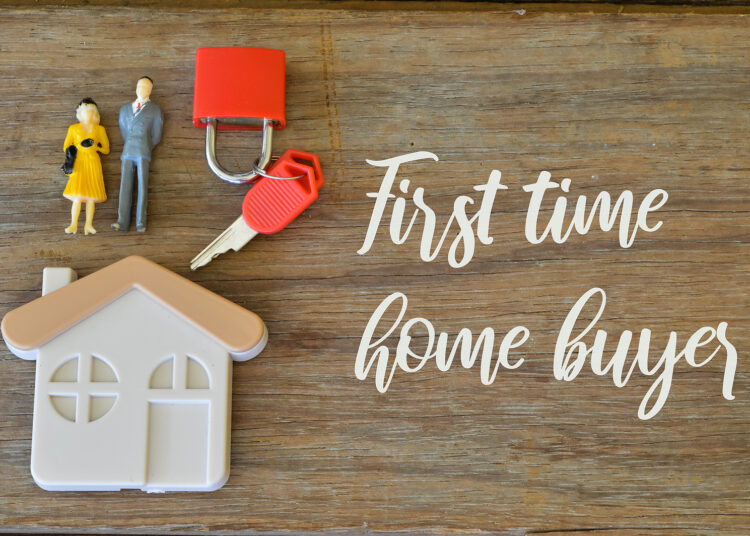Embarking on the journey of buying your first home can be both exciting and overwhelming. In this guide, we will explore essential finance tips tailored for first-time home buyers, equipping you with the knowledge and tools needed to make informed decisions throughout the home buying process.
From researching the market to saving for a down payment, each section offers valuable insights to help you navigate this significant milestone with confidence.
Researching the Market
When it comes to purchasing a home for the first time, researching the real estate market is crucial to make an informed decision. Understanding current trends and property prices can help buyers navigate the buying process more effectively.
Finding Information on Property Prices
- Start by checking out real estate websites such as Zillow, Realtor.com, or Redfin to get an idea of property prices in your desired location.
- Attend open houses in the area to see firsthand what is available and get a sense of the market conditions.
- Consult with local real estate agents who have in-depth knowledge of the market and can provide valuable insights.
Importance of Market Understanding
- Knowing the market conditions can help you determine if it’s a buyer’s or seller’s market, which can impact your negotiation power.
- Understanding property prices can prevent you from overpaying for a home and ensure you are making a sound investment.
- Researching the market allows you to set realistic expectations and avoid potential pitfalls during the home buying process.
Setting a Budget
Setting a budget is a crucial step in the home buying process to ensure financial stability and avoid overspending. By following these steps, you can set a realistic budget for purchasing your first home.
Calculating Total Costs
- Start by determining your total monthly income after taxes. This will give you a clear picture of how much you can afford to spend on housing expenses.
- Calculate the total costs involved in buying a home, including the down payment, closing costs, and monthly mortgage payments. Use online calculators or seek advice from a financial advisor to get accurate estimates.
- Remember to factor in other expenses such as property taxes, homeowners insurance, and maintenance costs when calculating your budget.
Sticking to Your Budget
- Set a realistic budget based on your financial situation and avoid stretching yourself too thin. It’s important to prioritize your long-term financial health over the desire for a larger or more expensive home.
- Stick to your budget to avoid financial strain and future debt. Be disciplined in your spending and resist the temptation to exceed your budget, even if you find a home that is slightly above your price range.
- Consider getting pre-approved for a mortgage to have a clear understanding of how much you can borrow and afford. This will help you stay within your budget and avoid any surprises during the home buying process.
Understanding Mortgage Options
When it comes to purchasing a home, understanding the different mortgage options available is crucial for first-time home buyers. This will help you make an informed decision based on your financial situation and long-term goals.
Fixed-Rate Mortgages vs. Adjustable-Rate Mortgages
- A fixed-rate mortgage offers a stable interest rate throughout the loan term, providing predictability in monthly payments. This is ideal for buyers who prefer consistency and want to budget effectively.
- An adjustable-rate mortgage (ARM) has an interest rate that can change periodically, usually after an initial fixed-rate period. While initial rates may be lower, there is a risk of rates increasing in the future, potentially leading to higher monthly payments.
Choosing the Most Suitable Mortgage Option
- Assess your financial situation, including income, expenses, and long-term financial goals, to determine how much you can afford to pay monthly.
- Consider your risk tolerance and how long you plan to stay in the home. If you prefer stability and expect to stay long-term, a fixed-rate mortgage may be more suitable. If you plan to sell or refinance in a few years, an ARM with a lower initial rate could be beneficial.
- Compare offers from multiple lenders, considering not only interest rates but also fees, terms, and customer service. Don’t hesitate to ask questions and seek clarification to ensure you fully understand the terms of the mortgage.
Building Credit Score
Building a good credit score is crucial for first-time home buyers as it can greatly impact the mortgage rates they qualify for. Maintaining a good credit history throughout the home buying process is key to securing a favorable loan. For those with limited credit history, it’s important to establish credit in order to improve their chances of getting approved for a mortgage.
Strategies for Improving Credit Scores
- Pay bills on time: Timely payment of bills, including credit card bills, can help boost your credit score.
- Keep credit card balances low: Aim to keep your credit card balances below 30% of your credit limit to demonstrate responsible credit usage.
- Monitor your credit report: Regularly check your credit report for errors and address any issues promptly.
- Diversify your credit mix: Having a mix of credit types, such as credit cards, loans, and a mortgage, can positively impact your credit score.
Importance of Maintaining Good Credit History
Maintaining a good credit history is essential throughout the home buying process as lenders use your credit score to assess your creditworthiness. A strong credit history can lead to better mortgage terms, including lower interest rates and higher loan amounts.
Establishing Credit with Limited Credit History
- Apply for a secured credit card: Secured credit cards require a deposit and are easier to qualify for, making them a good option for those with limited credit history.
- Become an authorized user: Being added as an authorized user on someone else’s credit card can help you establish credit history.
- Consider a credit-builder loan: Credit-builder loans are designed to help individuals build credit and establish a positive credit history.
Saving for Down Payment
Saving for a down payment is a crucial step in the home buying process. It requires discipline, planning, and sometimes creative solutions. Here are some tips to help you reach your down payment goal.
Setting Savings Goals and Timelines
- Calculate how much you need for a down payment based on the price range of homes you are considering.
- Set a realistic savings goal and timeline to reach that amount. Break it down into monthly or weekly contributions to make it more manageable.
- Automate your savings by setting up automatic transfers from your checking account to a separate savings account dedicated to your down payment.
Alternative Sources of Funding
- Consider gifts from family members towards your down payment. Make sure to follow the guidelines set by mortgage lenders regarding gift funds.
- Look into down payment assistance programs offered by government agencies, non-profits, or employers. These programs can provide financial support to help you reach your goal.
- Explore state or local programs that offer grants or low-interest loans for first-time homebuyers.
Reducing Expenses and Increasing Savings
- Create a budget and identify areas where you can cut back on expenses. This could include dining out less, reducing unnecessary subscriptions, or finding ways to save on utilities.
- Consider taking on a side hustle or freelance work to earn extra income that can be put towards your down payment fund.
- Look for opportunities to save money on big-ticket items like transportation, housing, and entertainment. Every dollar saved gets you closer to your down payment target.
Final Review
As we wrap up our discussion on finance tips for first-time home buyers, remember that preparation and financial literacy are key to a successful home purchase. By implementing the strategies Artikeld in this guide, you can embark on your homeownership journey with clarity and assurance.
Whether you’re researching the market or saving for a down payment, each step plays a crucial role in achieving your dream of owning a home. Here’s to a smooth and fulfilling home buying experience ahead!
FAQ Resource
How can I improve my credit score to qualify for better mortgage rates?
To improve your credit score, focus on paying bills on time, reducing debt, and checking your credit report for errors. Additionally, keeping credit card balances low and avoiding new credit inquiries can also help boost your score.
Where can I find information about property prices in my desired location?
You can find information about property prices in your desired location through real estate websites, local property listings, and by consulting with real estate agents who specialize in that area. Additionally, attending open houses and networking with homeowners in the neighborhood can provide valuable insights.
What are alternative sources of funding for the down payment?
Alternative sources of funding for the down payment can include gifts from family members, assistance programs offered by government agencies or non-profit organizations, and employer-sponsored down payment assistance programs. These sources can help supplement your savings and make homeownership more accessible.










